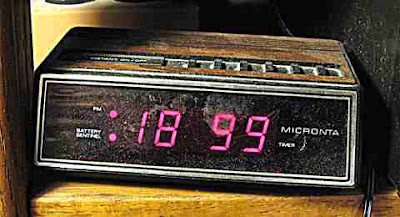
But I did. It's a good book about an interesting subject. Read it. Well written, filled with fascinating details, it reveals the often mysterious connections between music and society. The Rest Is Noise is not a book just for musicians. Anyone who's ever wondered why musicians think tritones are important will find it revealing.
THE MUSICAL OCEAN
The Rest Is Noise tells a long story. It gives an impression of twentieth century music as a musical "river". This noisy river carries us from one important composer to the next. Judging by the number of pages given them, Ross has focused our attention on just a few very important composers. [1]
I have no argument with his picks. The Important are all white males. (Duke Ellington squeaks into the top 35 or so.) There is significant over-representation of Jews and gays. They come from (or move to) Germany, France, Russia or New York, although Finland and England each get one. Ross clearly knows (and says several times) that composers come in other colors, genders and nationalities but these mostly get mere mentions.
I do feel that the subtitle "Listening to the 20th Century" is misleading. A book which really covered the entire history of ALL 20th century music would be very different. It would include all the other "rivers", not just the classical one, which drain into the music ocean. At the end of the century some of those other rivers seem more important to me than the classics. [2]
At the end of the century we have easy access to quantities and varieties of music that would have been simply incomprehensible a century ago. Today anyone can develop familiarity with lots of widely different musics. Our new found ability to teleport anywhere in the musical ocean at the click of an iPod is, in my opinion, the most hopeful part of the story of twentieth century music.
I've wondered before (in this post Rich Critic, Poor Critic; look near the end and in the comments) whether the title The Rest Is Noise means to subtly imply that some music is intrinsically better than other music, either overall or just within the classical sphere. Having now read the entire book I still wonder whether that's the intended subtext of this book.

POLITICS OF MUSIC
The way Ross takes a full century filled with curious musical ideas of quirky musicians and ties them into social and political history of the real world is the book's best part.
Politics - whether between waring nations or waring music theories - has had a profound affect on music. Music has never really had any power to cause change (in spite of what Neil Young says [3]). The Rest Is Noise is filled with stories of composers who reinvent themselves and their music following the winds of the political aesthetics or aesthetic politics.
The middle section of The Rest Is Noise very trenchantly devotes a chapter each to the politicizing of music in Soviet Russia, the United States and Nazi Germany during the 1930's and 40's. [4]
The one politician who most influenced the course of twentieth century music was probably Adolph Hitler. He made classical music a weapon of social control in Nazi Germany. [5] After the war the Allies used his own weapon to help denazify the country. [6]
In the 50s a new enemy was agreed upon and the U.S. turned our musical firepower against the Soviets. Secret CIA money funded parts of the European avant-garde during the Cold War. This was supposed to show the rest of the world how the West enjoyed greater freedom. [7] Even later, in the backlash to all that CIA musical ordnance, minimalism took root.
Thanks a lot Adolph. The results of your interest in Wagner operas are still exerting a small effect on musical life today. The story of 20th century music would be a lot different if you had just had the same level of interest as Dubya does now.
Along with politics, Ross often dwells on large scale dramatic works (by which I mean operas; think Salome, Lulu or Peter Grimes). He susses out meaning in the music by deconstructing plot and characters. These are not my personal musical pillars of the century. For me these were the slowest parts of The Rest Is Noise. [8]
HOPING FOR REVISIONISM
Ross's 20th century music narrative breaks down at the end. It's as if the river delta spreads out over so much area that no direction of flow is obvious. This is because we lack the benefit of hindsight. It's not yet certain who will be crowned as the end-of-century classical music heroes. Musical history is filled with forgotten once-famous success stories and deified reanimated living failures. Some contemporary composers will undoubtedly become one or the other.
So, at the end of The Rest Is Noise Ross understandably resorts to musical name dropping, giving us long lists of current well-known composers. I hope he rewrites this ending in about 20 years when there's general agreement over who actually ascends to the pantheon of musical importance. Those are the artists whose musical idea future composers will be forced to deal with.
Will those new composer heroes still be white and male? Probably. Will they be exclusively French, German, Russian or New Yorkers? Possibly. Will the story still exclude all other types of music besides the classical tradition. I hope not. But some things, I fear, never change.

Footnotes:
[1] Using a very rough guide (the number of lines - not the number of references - in the index) the top 35 individuals (not all are composers) in The Rest is Noise pantheon are: Arnold Schoenberg, Igor Stravinsky, Dimitri Shostakovich, Aaron Copland, Benjamin Britten, Olivier Messiaen/Richard Strauss, Gustav Mahler/Sergei Prokofiev, Bela Bartok/Jean Sibelius, Kurt Weill, John Cage/Richard Wagner, Alban Berg/Claude Debussy/George Gershwin, Anton Webern/Paul Hindemith/Pierre Boulez, Charles Ives, Bertolt Brecht/Karlheinz Stockhausen/Leonard Bernstein/Virgil Thompson, Adolf Hitler/Gyorgy Ligeti/Josef Stalin/Morton Feldman/Philip Glass/Steve Reich, Duke Ellington/Leos Janacek/Ludwig van Beethoven/Thomas Mann. (The slash indicates a tie.)
[2] To cover everything it would probably take equally large century-spanning essays on jazz (which has become another "classical" music), rock 'n roll, pop music, world music, music theater and musical technology. By technology I mean all manner of recording gadgets, reproduction formats and distribution schemes, from acoustic recording to 8 tracks to Napster. Maybe some of these books already exist.
[3] Click here to read about Neil Young who recently said "I think that the time when music could change the world is past." That time never happened. Famous musicians can delude themselves into thinking they cause change. In Neil Young's time music didn't change anything - it merely followed as the world changed around it. These days, unfortunately, only capitalism and religion have power to cause real change - and not necessarily for the better (all this is in my opinion, of course).
[4] A fine movie about the clash of politics, music and corporate philanthropy during WPA America is Cradle Will Rock by Tim Robbins.
[5] But Hitler really couldn't control jazz music the way he did classical. See the book Different Drummers, Jazz in the Culture of Nazi Germany by Michael H. Kater.
[6] Another movie to watch: Taking Sides about a U.S. Army officer who has to decide whether Wilhelm Furtwangler deserves to return to his job conducting the Berlin Philharmonic.
[7] Read Who Paid The Piper, The CIA and the Cultural Cold War by Frances Stonor Saunders which deals with many arts not just music. I personally find this story highly amusing: to discover as an adult that the avant-garde composer heroes of my education and early career, whose work contributed heavily to my own aesthetics, were artificially promoted for dubious political reasons far beyond any possible public acceptance of their actual work. No wonder audiences hate 20th century music - it's all a secret government conspiracy. Ha.
[8] In my own mixed musical manifesto (read it here, scroll down) I suggest that real music doesn't have lyrics. I wonder: could an opera be written which has NO lyrics?
[9] I took the picture of the bust of Henry Cowell in the Stanford music library. Cowell would been in the top 50 if I'd extended the list in footnote 1. The other guy is my absolutely favorite 20th century chamber music composer (because his best work easily rivals Bartok or Messiaen) who didn't get a single mention in The Rest Is Noise.
Read The New Yorker and the Hero Composer In Los Angeles, a previous MM post discussing Alex Ross' New Yorker article about Esa-Pekka Salonen. Click here to read how my picture appeared in Ross' blog The Rest Is Noise which has audio samples to accompany the book here.
Noise Tags: The Rest Is Noise. . . Alex Ross. . . composers. . . classical music. . . twentieth century music. . . Adolph Hitler. . . CIA














